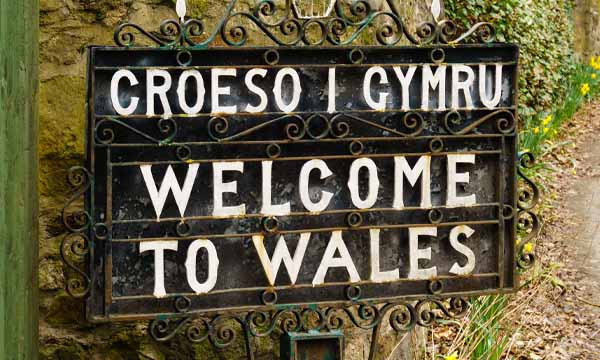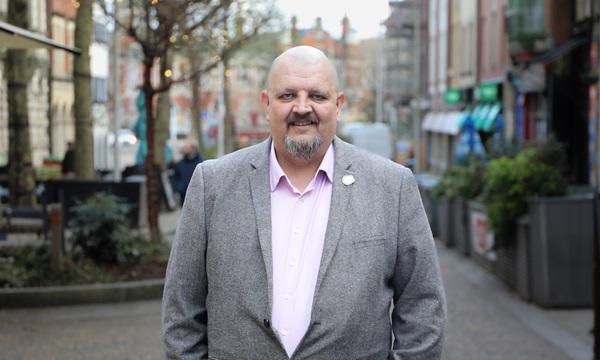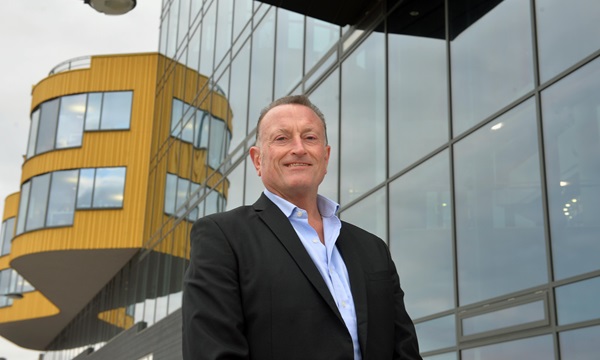In this week's exclusive Transport Column, Christine Boston explores
how transport planning should be more focused towards
overall wellbeing than economic gain for better results.
If you are a peak-time commuter, the immediate images that might flash into your mind when you think about transport include queues of traffic or packed out trains. So I want to begin this column by reminding you of the joy that lies at the heart of every journey.
On the face of it, transport is just a way of getting somewhere.
We all need transport to get to work or meet up with friends and we think of it as a means to an end. It’s something so essential for experiencing and enjoying everyday life that we often take it for granted because we are surrounded by options.
If you really think about it though, it isn’t getting to the destination that makes transport matter to you. It’s actually the feeling of freedom and independence that lies at its heart which is the most important thing. The sense that you are not confined but in control of your own destiny and able to go wherever you want.
And if you stop to notice, it makes you feel good in lots of ways because it gives you a feeling of movement, of driving forward, of making progress. It’s dynamic and it makes you feel alive because it opens up a whole world of possibilities.
So imagine if you didn’t have that. Let’s say the bus company has just pulled out of your area; or the train station is too far for you to get to; or maybe there is a bus stop at the end of your road but you can’t walk there or even if you could, you can’t carry your shopping back because it’s up a hill or just too far for you to manage.
And it isn’t just older people or those with disabilities who have problems.
Have you tried travelling with a pram or a bike? Even taking a child on public transport can be difficult, especially at peak times.
When it comes to connecting communities, it’s a fact that this cannot be achieved unless we start thinking about the needs of all passengers, rather than just those who are already frequent public transport users. And, if we did start with the needs of the most vulnerable, we would provide a service that works for everyone.
In my view, one of the problems is that for too long, transport solutions have been developed primarily with a focus on economic growth rather than overall well-being.
With the Well-being of Future Generations Act at the forefront of policy development in Wales, we have an opportunity to do things differently. The Act creates a framework that aims to ensure all needs are considered when making decisions and it is clear from the well-being goals that if we did plan transport for well-being, then economic ambitions would be part of that but so would environmental, health and social needs as well.
It is evident that solely focusing on economic ambition leaves some people behind which is why, so often, community transport operators are called upon to fill the ever-widening gaps in the transport market. These not-for-profit services are developed by local organisations with the specific needs of that community in mind.
Community transport operates right across Wales with local people coming together to make sure that everyone can get to where they need to go, regardless of their circumstances.
Thanks to the army of community transport staff and volunteers, these organisations can offer a fully accessible, demand responsive service which meets the specific needs of each passenger. These services help to ensure that everyone can maintain that feeling of freedom and independence.
At the Community Transport Association, we believe that people lie at the heart of transport success and harnessing local knowledge and commitment is the best way to develop solutions that make a difference for everyone.
We would like to see a different approach to transport planning that takes the whole community into account and not just those who are easy to help. This should include more opportunities for local innovation led by local people because we believe that the answers to the transport problems we face today are held by the individuals and communities we serve.


More About Christine Boston
Christine Boston is Wales Director for the Community Transport Association (CTA) and in this role, works with operators and staff across Wales to champion accessible and inclusive transport. The team in Wales is currently delivering the £2.5m Connecting Communities in Wales project which aims to build a pan-Wales demand responsive transport network.
With a background in policy development in Wales, Christine works with political institutions and other stakeholders to raise awareness of the contribution made by the community transport sector and the difference services make to people’s lives. CTA promotes a different way of ‘doing’ transport which is community-led and people-powered.























